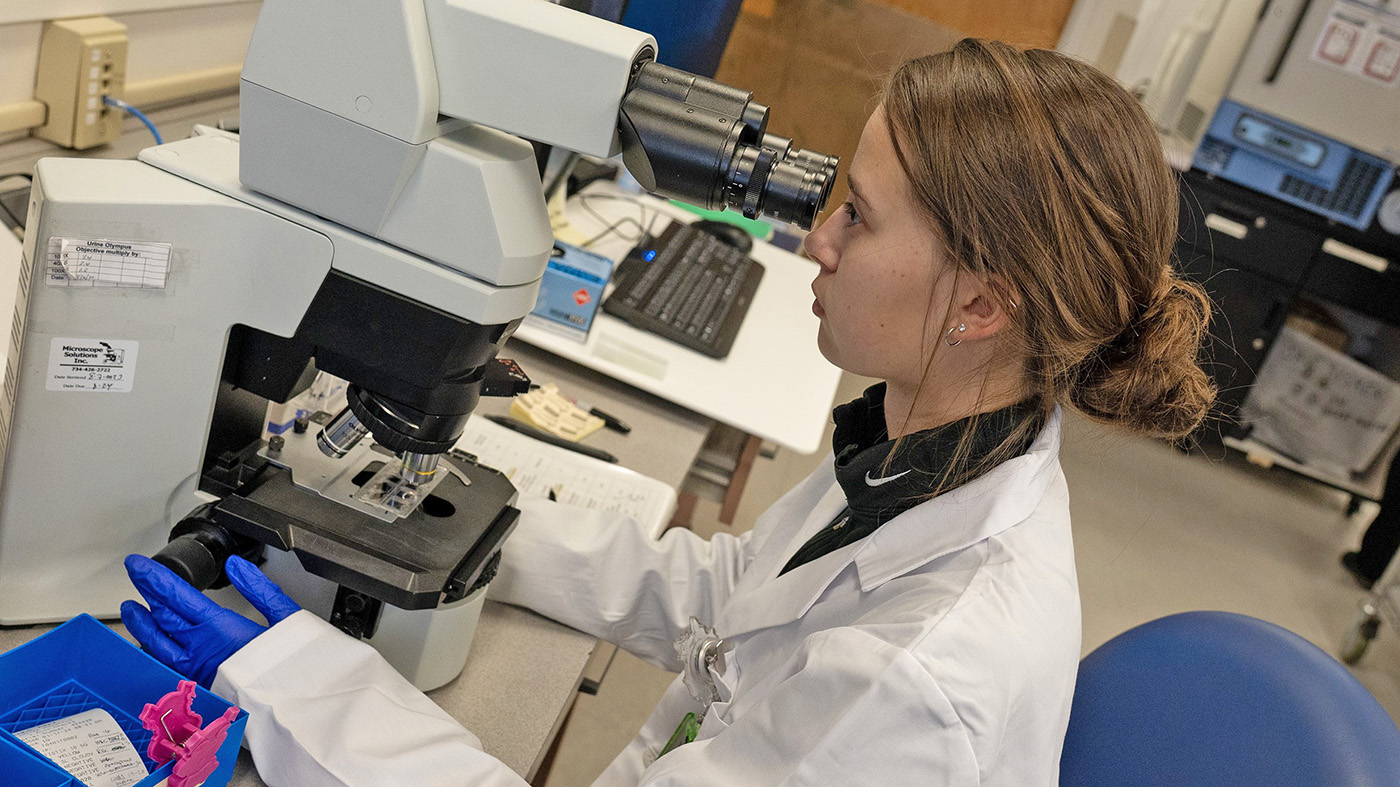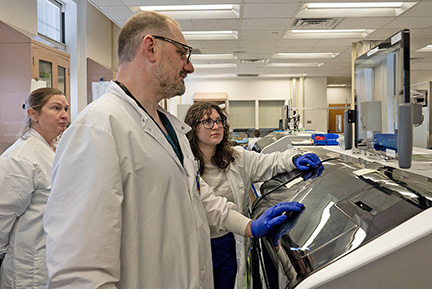Battle Creek VA’s Laboratory Service has a team of 35 specialists providing both clinicians and Veterans with vital information to help them make a diagnosis or to treat a disease. Some studies conclude that as high as 70% of the medical decisions are based on laboratory data.
Laboratory Medicine—also referred to as Clinical Pathology—is one of two main branches of pathology, the science of the cause-and-effect study of diseases. Clinical Pathology diagnoses a disease through laboratory testing of blood, urine, stool, saliva and body fluids.
The other branch of pathology—Anatomic Pathology—consists of histology, diagnosing a disease by examining stained body tissues; Cytology studies the cellular structure, function and chemical makeup of cells.
“Whether a Veteran has a new disease or they’re being monitored for an existing disease, what gives the provider the answers they’re looking for is to draw blood, urine specimen or collect fluids from the joints or spinal fluid,” said Richard Thompson, laboratory manager. “They all have to come to laboratory and pathology department. We process those samples on some very sophisticated analyzers to give them the answers that they’re looking for.”
Process samples on sophisticated analyzers
Medical laboratory technologists are responsible for operating and maintaining the equipment used to examine samples or specimens. They ensure all tests are performed in a precise and timely manner so that the results and interpretations are accurate.
To find the right answer from specimens that are provided, Laboratory Service uses a wide variety of equipment. These laboratory professionals complete concentrated education and training to operate computers, analyzers and programs.
“It’s a very analytical type of job, so being able to use my brain and puzzle out the solution to give the provider the information they need to make the correct decision is very rewarding,” said Miriam Price, Microbiology & Phlebotomy supervisor. “Knowing that I’ve done good work for the people that I’ve helped today and that it’s all going to start all over again… because there is no ‘end-of-task’ here… and knowing that we’re able to provide the best care, surrounded by a good team, gives me and our team a lot of pride.”
Taking care of Veterans is very rewarding
Early detection and diagnosis lead to better targeted therapy with fewer side effects. Using the guidance from genetic tests, physicians can prescribe the right drugs, at the right times, and at the right doses for the Veteran population.
Each month, Battle Creek’s Laboratory Service serves approximately 2,100 Veterans. Annually, they process specimens for around 25,000 Veterans. The mission of this critical health care service will always be an ongoing one.
Battle Creek VA, along with four clinics, is responsible for Veteran care in 21 counties of Michigan, where there is a Veteran population of over 144,600.
“Working with Veterans has given us a specific focus on a group of people who have done so much for us and our country,” said Thompson. “For us to be able to return that favor and to take care of that Veteran who so gave of themselves and serve them in this capacity is so very rewarding.”
Topics in this story
More Stories
Study underscores important role COVID vaccination can have in protecting Veterans from infection and reducing long-term health consequences
Columbia VA’s robotic surgery teams completed their 800th robotic surgery and are on schedule to hit 1,000 by the end of the year.
In a decentralized clinical trial, Veterans can participate from their own homes or local VA instead of having to travel to a research site.








Ok so only one facility in the whole VA can do this, do we all get to go to the Battle Creek VA for our lab work now, so we know it’s correct!!